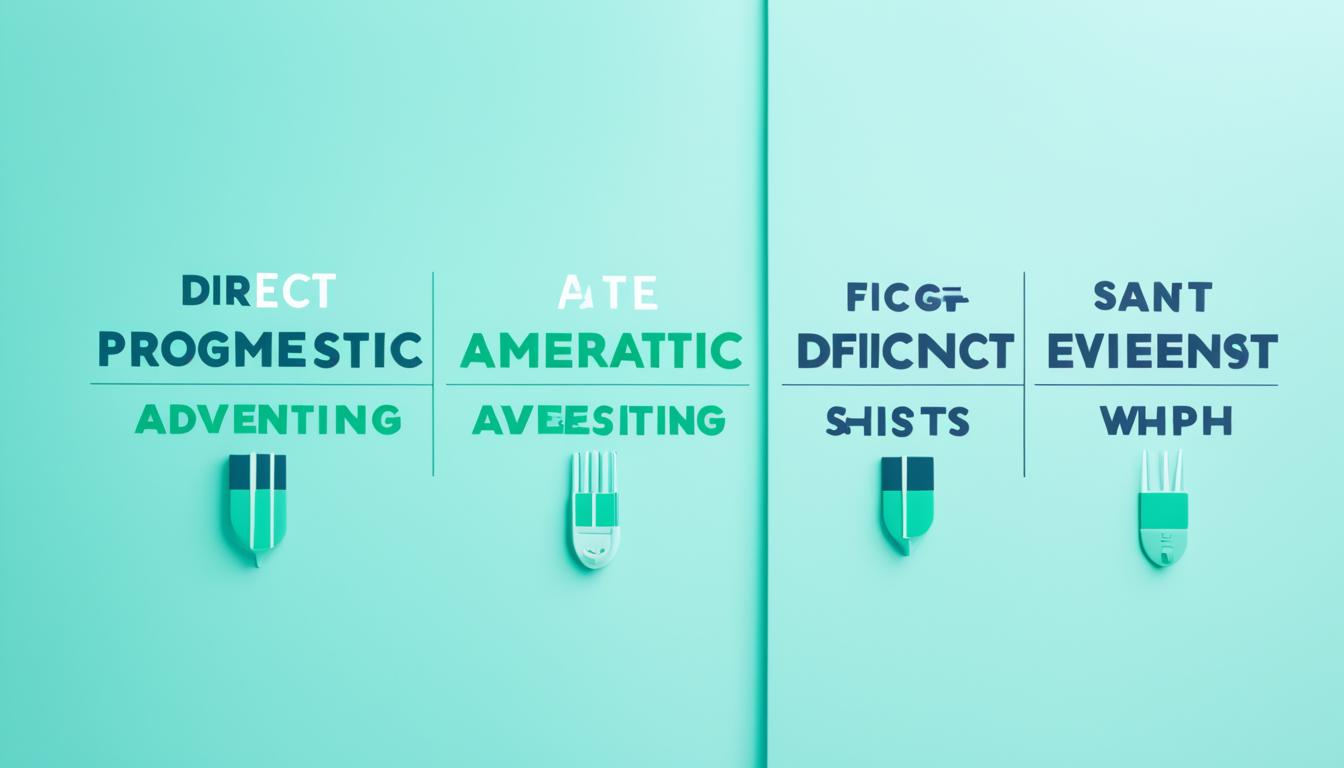Advertising
Bookstore Boost: Google Ads Strategies for Independent Sellers

Are you the proprietor of an independent bookstore seeking ways to enhance your enterprise? Search no more! This piece will uncover the proven Google Ads tactics we’ve employed to assist numerous entrepreneurs like yourself to flourish in the digital shopping era.
From understanding the basics to scaling your campaign for growth, we’ve got you covered. So grab a pen and paper, because by the end of this article, you’ll be well on your way to mastering the art of bookstore advertising with Google Ads.
Let’s get started!
Key Takeaways
- Determine ad budget: Allocate resources effectively for optimal results
- Optimize ad targeting: Reach the right audience and maximize return on investment
- Craft compelling ad copy: Highlight unique selling points and include clear call-to-action
- Analyze performance metrics: Use data-driven insights to refine ad targeting strategies
Understanding Google Ads Basics
In this article, we’ll explore the basics of Google Ads to help independent sellers boost their bookstore sales. Understanding Google Ads is crucial for achieving success in online advertising.

One important aspect to consider is the bidding strategy. Google Ads offers several bidding strategies that allow sellers to optimize their ad campaigns based on their goals. Some popular bidding strategies include manual cost-per-click (CPC), target cost-per-acquisition (CPA), and enhanced cost-per-click (ECPC). By selecting the right bidding strategy, sellers can effectively manage their budget and maximize their return on investment.
Another key element in Google Ads is ad scheduling. Ad scheduling allows sellers to control when their ads are shown to potential customers. By analyzing historical data and understanding customer behavior, sellers can determine the most effective times to display their ads. This ensures that ads are shown when the target audience is most likely to engage with them, increasing the chances of conversion and maximizing the ad spend.
Budgeting is also a crucial aspect of Google Ads. Sellers need to set a budget that aligns with their advertising goals and financial capabilities. It’s important to regularly monitor and adjust the budget to ensure it’s being used effectively. By analyzing performance metrics such as click-through rates, conversion rates, and return on ad spend, sellers can make informed decisions about their budget allocation.
Setting Up Your Google Ads Account
Now that we understand the basics of Google Ads, it’s time to set up our account and get started with our bookstore’s advertising campaign.

In this section, we’ll discuss the essential steps for setting up your Google Ads account, including:
- Creating an account
- Defining your campaign goals
- Setting your budget
We’ll also explore strategies for optimizing ad targeting to reach the right audience and maximize your bookstore’s visibility and sales.
Let’s get started and make the most out of Google Ads for our independent bookstore!
Account Setup Essentials
To set up our Google Ads account for optimal performance, we’ll need to follow a few essential steps:

- Choose the right campaign type: Select the campaign type that aligns with your advertising goals, whether it’s driving website traffic, generating leads, or increasing sales.
- Define your target audience: Identify your ideal customers and create detailed customer personas. This will help you tailor your ads and messaging to reach the right people at the right time.
- Set a realistic budget: Determine how much you’re willing to spend on advertising and allocate your budget strategically. Consider using Google’s automated bidding strategies to optimize your ad spend.
- Craft compelling ad copy: Write engaging and persuasive ad copies that highlight the unique selling points of your bookstore. Use relevant keywords and include a clear call-to-action to drive conversions.
By following these account setup best practices and optimizing your ad budget, you’ll be well on your way to reaching your advertising goals.
Now let’s dive into the next section about optimizing ad targeting to further enhance your campaign’s performance.
Optimizing Ad Targeting
Let’s dive into the process of optimizing ad targeting and setting up your Google Ads account for maximum effectiveness.
When it comes to ad targeting, two key factors to consider are your ad budget and ad scheduling.

First, determine your ad budget – the amount you’re willing to spend on advertising. This will help you allocate your resources effectively for optimal results.
Next, consider ad scheduling, which allows you to choose specific days and times to run your ads. By analyzing data and understanding your target audience’s behavior, you can schedule your ads to reach them when they’re most likely to engage.
This strategic approach ensures that your ads are seen by the right people at the right time, maximizing your chances of success.
Conducting Keyword Research for Bookstores
When it comes to conducting keyword research for bookstores, we need to focus on targeting niche book genres to attract the right audience.

By optimizing for localized keywords, we can increase the visibility of our bookstore in specific regions or cities.
Additionally, implementing long-tail keyword strategies will help us capture more specific search queries and improve our chances of reaching customers who are actively looking for the books we offer.
Targeting Niche Book Genres
We frequently conduct keyword research for our bookstore to target niche book genres and improve our Google Ads strategies as independent sellers. By targeting specific book genres, we can better connect with our target audience and increase the visibility of our bookstore.
Here are four key strategies we use for targeting niche book genres:

- Identify popular keywords: We research popular keywords related to specific book genres to understand what potential customers are searching for.
- Focus on targeting young readers: We prioritize targeting keywords that appeal to young readers, such as ‘children’s books’ or ‘young adult fiction,’ to attract our desired demographic.
- Promote local authors: We use keywords that highlight local authors and their works to attract readers who are interested in supporting local talent.
- Utilize long-tail keywords: We incorporate long-tail keywords, such as ‘historical mystery novels’ or ‘sci-fi books set in space,’ to target niche book genres and reach a more specific audience.
Localized Keyword Optimization
To further enhance our Google Ads strategies as independent sellers targeting niche book genres, we delve into the realm of localized keyword optimization for bookstores. Localized keyword targeting is a crucial aspect of geographical ad optimization, as it helps us reach our target audience more effectively.
By incorporating location-specific keywords in our ad campaigns, we can attract customers who are actively searching for books in their area. This strategy allows us to tap into the local market and increase foot traffic to our physical stores.
To conduct effective keyword research for bookstores, we can use tools like Google Keyword Planner and Google Trends to identify popular search terms related to our bookstore’s location and niche genres. By optimizing our ads with these localized keywords, we can maximize our visibility and drive more targeted traffic to our stores.
Long-Tail Keyword Strategies
For effective long-tail keyword strategies in conducting keyword research for bookstores, we rely on using tools like Google Keyword Planner and Google Trends. These tools help us identify the most relevant and specific keywords that will attract the right audience to our bookstore.

Here are four key steps to optimize long tail keyword research and ad campaigns:
- Identify niche topics: Focus on specific genres, authors, or book-related topics that are unique to your bookstore. This will help you target a more specific audience and stand out from the competition.
- Use long-tail keywords: Long-tail keywords are longer, more specific phrases that have lower search volume but higher conversion rates. Incorporate these keywords into your website content, blog posts, and ad campaigns to attract highly targeted traffic.
- Analyze search volume and competition: Use Google Keyword Planner to determine the search volume and competition level for each keyword. Choose keywords with moderate search volume and low competition to maximize your chances of ranking higher in search results.
- Monitor and refine: Continuously monitor the performance of your long-tail keyword campaigns. Analyze the click-through rates, conversion rates, and other metrics to identify areas for improvement and make necessary adjustments.
Creating Compelling Ad Copy
Crafting compelling ad copy is essential for independent sellers looking to boost their presence and sales on Google Ads. Writing compelling ads requires the use of effective ad copy techniques that grab the attention of potential customers and persuade them to take action.
One technique is to focus on the unique selling points of your products or services. Highlight what sets you apart from the competition and why customers should choose you. Use persuasive language and emphasize the benefits your customers will gain by purchasing from you.
Another technique is to create a sense of urgency. Limited-time offers, exclusive deals, or promotions can entice customers to click on your ad and make a purchase. Incorporate action-oriented words like ‘limited time,’ ‘exclusive,’ or ‘today only’ to create a sense of urgency and encourage immediate action.

Additionally, using emotional appeals can be highly effective in creating compelling ad copy. Tap into the desires, fears, or aspirations of your target audience to create a connection and evoke an emotional response. This can help to establish a strong bond with potential customers and increase the likelihood of conversion.
Optimizing Landing Pages for Conversions
We optimize landing pages to increase conversions. Conversion rate optimization is crucial for any online business, including independent sellers in the bookstore industry. By optimizing landing pages, we can improve the chances of turning website visitors into customers.
Here are four strategies for optimizing landing pages:
- Clear and compelling headlines: A strong headline grabs the attention of visitors and clearly communicates the value proposition of your bookstore. Use persuasive language to entice visitors to stay on the page and explore further.
- Simple and intuitive navigation: Make it easy for visitors to find what they’re looking for. Use clear navigation menus and avoid clutter. Ensure that important information, such as contact details and product categories, are easily accessible.
- Engaging and relevant content: Provide valuable content that’s tailored to your target audience. Showcase your bookstore’s unique selling points, such as curated book collections or personalized recommendations. Use persuasive language and visuals to engage visitors and keep them interested.
- A/B testing landing pages: Test different variations of your landing pages to identify what works best for your audience. Experiment with different layouts, colors, and call-to-action buttons. Analyze the data to make data-driven decisions and continually improve your conversion rates.
Targeting the Right Audience With Google Ads
To effectively target the right audience with Google Ads, it’s essential that we conduct thorough research and analysis of potential customers. By understanding our target audience’s demographics, interests, and behaviors, we can create more relevant and impactful ads that drive results. This allows us to improve ad relevancy and increase the likelihood of conversions.

One way to gather valuable insights about our target audience is through keyword research. By identifying the keywords and phrases our potential customers are using to search for products or services, we can align our ads with their search intent. This helps us reach the right people at the right time, increasing the chances of them clicking on our ads.
Additionally, we can use audience targeting options provided by Google Ads to further refine our targeting. This includes targeting based on demographics, interests, and behaviors. For example, if we’re selling books, we can target people who’ve shown an interest in reading or specific book genres.
To measure the success of our targeting efforts, we need to track key metrics such as click-through rates (CTR), conversion rates, and return on ad spend (ROAS). These metrics provide valuable insights into the performance of our campaigns and enable us to make data-driven optimizations.
Monitoring and Analyzing Performance Metrics
By analyzing key performance metrics, we can gain valuable insights into the effectiveness of our Google Ads campaigns and make data-driven optimizations. Tracking conversions and analyzing click-through rates are essential steps in monitoring and analyzing the performance of our campaigns. Here are four ways to effectively monitor and analyze performance metrics:

- Set up conversion tracking: By implementing conversion tracking, we can measure the number of purchases, form submissions, or any other actions that are valuable to our business. This helps us understand which keywords and ads are driving the most conversions.
- Analyze click-through rates (CTR): CTR is a metric that measures the percentage of people who click on our ads after seeing them. By analyzing CTR, we can determine the relevance and effectiveness of our ad copy and make necessary adjustments to improve performance.
- Monitor cost per conversion: Cost per conversion shows us how much we’re spending for each conversion. By keeping an eye on this metric, we can identify opportunities to optimize our campaigns, such as adjusting bidding strategies or refining targeting.
- Track return on ad spend (ROAS): ROAS measures the revenue generated for every dollar spent on ads. By tracking ROAS, we can identify which campaigns are driving the highest return and allocate our budget accordingly.
By consistently monitoring and analyzing these performance metrics, we can make data-driven optimizations to improve the effectiveness and efficiency of our Google Ads campaigns.
Now, let’s explore how to scale our campaigns for growth.
Scaling Your Google Ads Campaign for Growth
As we analyze the performance metrics of our Google Ads campaigns, it becomes evident that scaling our campaign for growth is the next crucial step for our independent bookstore. To achieve this, we need to implement effective scaling strategies and optimize our budget allocation.
One scaling strategy is to expand our keyword targeting. By identifying additional relevant keywords that our potential customers might use in their searches, we can increase our reach and attract more qualified traffic to our website. This can be done through thorough keyword research and analysis, as well as ongoing monitoring and adjustment of our keyword list.

Another strategy is to increase our budget strategically. Rather than simply allocating more funds across all campaigns, we can identify the top-performing campaigns and channels and prioritize them for budget optimization. By focusing our resources on the most effective channels, we can maximize our return on investment and drive more conversions.
Additionally, we can explore opportunities for remarketing. By showing targeted ads to users who’ve previously visited our website or engaged with our content, we can increase brand recall and encourage them to revisit and make a purchase. Remarketing can be done through Google Ads’ audience targeting features, allowing us to reach out to potential customers who’ve already shown interest in our bookstore.
Frequently Asked Questions
How Can I Determine My Budget for Google Ads?
When determining our budget for Google Ads, we consider factors like our marketing goals, target audience, and competition. It’s important to set a realistic budget that aligns with our objectives and maximizes our return on investment.
What Are Some Best Practices for Bidding on Keywords?
When it comes to bidding on keywords, we’ve found that optimizing ad copy and using negative keywords are key. These strategies help us maximize our budget and ensure our ads reach the right audience.

How Can I Track Conversions and Measure the Success of My Google Ads Campaign?
To track conversions and measure the success of our Google Ads campaign, we use key metrics like click-through rate, conversion rate, and cost per conversion. We optimize ad performance with tips and tricks for better results.
Are There Any Specific Strategies for Targeting Local Customers With Google Ads?
To target local customers with Google Ads, we utilize effective local SEO and geo-targeting strategies. By optimizing our ads with location-specific keywords and targeting specific geographic areas, we can reach the right audience and boost our bookstore’s visibility.
What Are Some Common Mistakes to Avoid When Running a Google Ads Campaign for a Bookstore?
Common mistakes to avoid when running a Google Ads campaign for a bookstore include not optimizing keywords, neglecting ad copy testing, and failing to target the right audience. These optimization techniques are crucial for success.
Conclusion
So there you have it, folks! With the power of Google Ads, independent bookstore owners can now reach a wider audience and boost their sales.

Just remember to conduct thorough keyword research, create compelling ad copy, and optimize your landing pages for conversions.
And don’t forget to monitor and analyze your performance metrics to fine-tune your campaign.
With these strategies in place, your bookstore will be skyrocketing to success in no time.
Happy advertising!

Advertising
Programmatic vs Display Advertising: Key Differences

Did you know that programmatic advertising is projected to reach nearly $800 billion by 2028? The world of digital marketing is experiencing a significant shift with the growing adoption of programmatic advertising. This spike in interest has piqued the curiosity of many marketers who are eager to understand the differences between programmatic advertising and traditional display ads.
Key Takeaways:
- Programmatic advertising is expected to reach nearly $800 billion by 2028.
- There are significant differences between programmatic advertising and display ads.
- Programmatic advertising utilizes automation and software for ad placement.
- Display ads focus on visual appeal and brand awareness.
- Understanding these differences will help marketers make informed decisions for their digital marketing campaigns.
What are Programmatic Ads?
Programmatic ads are online ads that are purchased and placed using software and automation. This modern approach to ad buying eliminates the need for manual negotiations with human representatives. Instead, programmatic ad buying software allows advertisers to automate the entire process, from purchasing ad space to selecting optimal ad placements and targeting specific audiences.
This automation brings several benefits to advertisers. With programmatic advertising, efficiency is greatly improved as manual tasks are digitized and streamlined. Advertisers can also achieve precise targeting by leveraging data and algorithms to reach the right audience at the right time.
Transparency is another advantage of programmatic ads. Advertisers have access to real-time reporting and optimization, allowing them to make data-driven decisions and adjust their campaigns as needed. This level of transparency also fosters trust between advertisers and publishers.
Furthermore, programmatic ads offer increased reach by providing access to a vast network of websites. Advertisers can leverage automation to reach their target audience across multiple platforms and devices, maximizing their ad’s visibility.
Finally, programmatic ads have proven to deliver improved return on investment (ROI). By leveraging automation and optimization, advertisers can achieve better campaign performance and results.
“Programmatic advertising allows advertisers to automate the entire ad buying process, improving efficiency, targeting, transparency, reach, and ROI.”
The Benefits of Programmatic Ads:
- Efficiency through automation
- Precise targeting based on data and algorithms
- Transparency with real-time reporting and optimization
- Increased reach across multiple platforms and devices
- Improved return on investment (ROI) through optimization
Programmatic ads have revolutionized the world of online advertising, offering advertisers a powerful tool to optimize their campaigns and drive better results.

Comparing Programmatic and Display Ads
When it comes to digital advertising, it’s important to understand the differences between programmatic and display ads. Programmatic advertising refers to the purchase process using automation and software, while display ads pertain to the format of the ad and where it appears on visual-based ads placed on a network of websites.
Programmatic Ads vs. Display Ads:
| Programmatic Ads | Display Ads |
|---|---|
| Automated ad placement | Visual-based ad format |
| Purchased through software and automation | Placed on websites through ad networks |
| Precise targeting and real-time reporting | Offers visual appeal and brand awareness |
| Increased reach and improved ROI | Targeting options and cost-effectiveness |
It’s important to note that programmatic ads can also be display ads and vice versa. However, programmatic ads can be placed both programmatically and manually, while display ads are primarily placed through ad networks.
Programmatic advertising provides several benefits such as efficiency, precise targeting, transparency, real-time reporting and optimization, increased reach, and improved ROI. On the other hand, display ads offer visual appeal, brand awareness, targeting options, cost-effectiveness, and a large reach.
Advantages of Programmatic Advertising
Programmatic advertising offers several advantages for online advertisers. In today’s digital landscape, where online advertising plays a crucial role in reaching target audiences, programmatic advertising has emerged as a powerful and efficient method to maximize campaign success.
1. Efficiency through Automation
One of the key advantages of programmatic advertising is its automation. By leveraging technology and algorithms, programmatic advertising streamlines the ad buying process, eliminating the need for manual negotiations and simplifying campaign management. With programmatic advertising, we can save time and resources, allowing us to focus on other aspects of our marketing strategy.
2. Precise Targeting
Programmatic advertising enables us to target specific audiences based on demographics, interests, location, and even retargeting. By leveraging data and audience insights, we can ensure that our ads are delivered to the right people at the right time, maximizing relevance and engagement. This precise targeting capability enhances the effectiveness of our campaigns and improves overall ROI.
3. Transparency in Advertising Campaigns
Transparency is a crucial aspect of programmatic advertising. With programmatic platforms, we have visibility into how our ads are performing and where they are being displayed. This transparency allows us to make data-driven decisions, optimize campaigns in real-time, and ensure that our ads are being shown in brand-safe environments.
4. Real-Time Reporting and Optimization
Programmatic advertising offers real-time reporting and optimization capabilities. We can access detailed performance data, such as impressions, clicks, conversions, and cost metrics, in real-time. This enables us to identify trends, make data-driven optimizations, and refine our campaigns on the fly, maximizing their effectiveness.
5. Increased Reach
Programmatic advertising provides access to a massive list of websites and platforms. By leveraging programmatic buying, we can reach a broader audience across various digital touchpoints, expanding our brand’s reach and maximizing exposure. This increased reach enables us to connect with potential customers wherever they are online.
6. Improved ROI through Automation and Optimization
With the efficiency and precision offered by programmatic advertising, we can achieve improved return on investment (ROI). By automating the ad buying process and optimizing campaigns based on real-time data, we can ensure that our advertising budget is allocated to the most effective strategies, driving better results and maximizing our ROI.

Programmatic advertising offers numerous advantages for online advertisers. Its efficiency, precise targeting, transparency, real-time reporting and optimization, increased reach, and improved ROI make it a valuable tool in our online advertising strategy.
Advantages of Display Ads
In digital advertising, display ads offer several advantages that make them a valuable tool for marketers. These ads are visually appealing and have the power to capture users’ attention effectively. With their eye-catching design and engaging visuals, display ads create positive impressions and enhance brand awareness.
One of the key strengths of display ads is their ability to reach a wide audience. As users browse various websites, they come across these ads, which increases the exposure and visibility of the brand. Display ads provide an opportunity to showcase products or services to a diverse range of potential customers.
The targeting options available with display ads are another advantage. Marketers can define specific demographics, interests, and other characteristics to reach their desired audience. This targeted approach ensures that the ads are delivered to the right people, increasing the chances of conversions and maximizing the return on investment.
Compared to other advertising methods, display ads are cost-effective. They provide a cost-efficient way to reach a large audience and deliver brand messages effectively. This affordability makes them an attractive choice for businesses of all sizes, whether they are established brands or startups looking to establish their presence.
In summary, the advantages of display ads in digital advertising include:
- Visual appeal and ability to capture users’ attention
- Effective brand awareness and visibility
- Precise targeting options for reaching the desired audience
- Cost-effectiveness compared to other advertising methods
- Wide reach through networks like the Google Display Network
When it comes to digital advertising, display ads play a crucial role in creating an engaging and impactful brand presence. Their visual appeal and targeting capabilities make them a valuable asset for marketers aiming to achieve their advertising goals.

How Programmatic Advertising Works
In the world of digital advertising, programmatic advertising is revolutionizing the way ads are bought and sold. This innovative approach utilizes software and automation to streamline the ad buying process and maximize efficiency. So, how does programmatic advertising actually work?
When a user visits a website, a real-time bidding (RTB) auction takes place behind the scenes. The website’s publisher offers ad space for sale, and advertisers have the opportunity to bid for that ad impression. These auctions happen instantaneously, ensuring that the highest bidder secures the ad placement.
Key to the programmatic advertising process are ad exchanges. Ad exchanges act as marketplaces, connecting publishers and advertisers. Publishers list their available ad space on these exchanges, which advertisers can then access to bid on the impressions they desire. This allows for seamless and efficient ad buying on a large scale.
With programmatic advertising, automation is at the core. Advertisers use software and algorithms to set their bidding parameters, targeting criteria, and budget limits. This automation enables precise ad targeting, ensuring that relevant ads are shown to the right audience at the right time.
Programmatic advertising offers numerous benefits for advertisers, including:
- Precise Targeting: Programmatic ads allow for granular audience targeting based on demographics, interests, behaviors, and more.
- Efficiency: The automated nature of programmatic advertising saves time and resources by eliminating manual negotiations.
- Real-Time Optimization: Advertisers can analyze campaign performance in real-time and make data-driven optimizations to maximize results.
- Increased Reach: Programmatic advertising provides access to a vast network of websites and publishers, expanding advertisers’ reach.
- Improved ROI: By harnessing automation and optimization, programmatic advertising can deliver better returns on ad spend.
In summary, programmatic advertising harnesses the power of automation and ad exchanges to streamline the ad buying process. This method enables precise targeting, improves efficiency, and ultimately drives better results for advertisers.

How Display Advertising Works
Display advertising is a powerful way to reach your target audience and promote your brand. In this section, we will explore how display advertising works, including the role of ad networks and targeting options.
When it comes to display advertising, ad networks play a crucial role. Ad networks connect advertisers with publishers, who own websites where the ads will be displayed. Ad publishers have several options for acquiring ad inventory:
- Contacting site owners directly
- Joining ad networks
- Acquiring ad inventory programmatically
Ad publishers can choose the option that best suits their needs and preferences.
Advertisers, on the other hand, have the opportunity to target their desired audience through display advertising. By using targeting options, advertisers can filter prospective site visitors based on various characteristics, including:
- Demographics
- Behavioral patterns
- Geographical location
- And more
By carefully selecting their targeting options, advertisers can ensure that their ads are seen by the most relevant audience, increasing the chances of engagement and conversions.
Once the ads are live, advertisers can track the effectiveness of their display advertising campaigns through various metrics, including:
- Page views
- Click-through rate (CTR)
- Cost per mille (CPM)
These insights help advertisers evaluate the performance of their campaigns and make informed decisions for optimization.
Now that you understand the inner workings of display advertising, let’s take a closer look at the data-driven world of programmatic advertising in the next section.
Example
“Display advertising allows us to reach a wide audience through strategic ad placement on relevant websites. By utilizing ad networks and employing precise targeting options, we can ensure that our ads are seen by the right people, leading to higher engagement and conversions.”
Comparing Display Advertising and Programmatic Advertising
| Display Advertising | Programmatic Advertising |
|---|---|
| Placement of ads on websites | Automated purchase and placement of ads |
| Targeting options | Precise targeting based on various parameters |
| Manual ad inventory acquisition | Automated ad inventory acquisition through software |
| Metrics tracked: Page views, CTR, CPM | Metrics tracked: Impressions, conversions, ROI |

Programmatic Advertising
Programmatic advertising is an automated method of buying and placing ads. It uses sophisticated algorithms and data analysis to target specific audiences, ensuring that ads are displayed to the right people at the right time. Programmatic advertising is highly efficient, allowing advertisers to maximize their ad spend and achieve better ROI. It also provides detailed real-time reporting and optimization for continuous campaign improvement.
Direct Display Advertising
Direct display advertising involves direct placement of ads on specific websites or within closed ad networks. This method requires advertisers to negotiate directly with publishers or network partners to secure ad space. While it may offer more control over ad placement, direct display advertising typically has a more limited reach compared to programmatic advertising. It is a more traditional approach and does not offer the same level of automation and optimization capabilities.
When it comes to choosing between programmatic and direct display advertising, it is important to consider your advertising goals, budget, and target audience. Programmatic advertising offers greater efficiency, precise targeting, and scalability, making it ideal for large-scale campaigns and reaching a broader audience. On the other hand, direct display advertising can be effective for niche markets or when specific websites align closely with your brand.
The Growth of Programmatic Advertising
Programmatic advertising is experiencing significant growth, with ad spend projected to reach new heights. In 2023, global programmatic advertising spending nearly hit $550 billion, and experts anticipate it to climb close to $800 billion by 2028. The digital ad spending landscape is evolving, and programmatic advertising is emerging as the dominant method.
Rapid Growth in Programmatic Video Ad Spending
Programmatic video ad spending is a key driver of the overall growth in programmatic advertising. In 2023, programmatic video ad spending amounted to $74 billion, and it is expected to surge to $96 billion by 2025. As video content becomes increasingly popular and platforms like YouTube and social media embrace programmatic advertising, this upward trend is likely to continue.
Programmatic advertising offers advertisers numerous advantages, including efficiency, precise targeting, transparency, real-time reporting and optimization, increased reach, and improved return on investment (ROI). Its ability to automate the ad buying process and optimize campaigns in real-time allows advertisers to maximize their ad spend and achieve better results.
With the continuous growth of programmatic advertising and the proven effectiveness of its strategies, advertisers are increasingly shifting their digital ad spending towards this method. By leveraging programmatic advertising, businesses can reach their target audiences more efficiently and drive better campaign performance.

| Year | Programmatic Advertising Spending (in billions) |
|---|---|
| 2023 | $550 |
| 2025 | $700 |
| 2028 | $800 |
Conclusion
In the world of digital marketing, programmatic advertising and display ads are two distinct approaches that offer unique advantages for advertisers. Programmatic advertising allows for efficient and precise targeting, transparency in reporting and optimization, and increased reach, ultimately leading to improved return on investment (ROI).
On the other hand, display ads excel in visual appeal, creating brand awareness, providing various targeting options, and offering cost-effective solutions with a wide reach. Both programmatic advertising and display ads play integral roles in the success of digital marketing campaigns.
Understanding the differences between these two strategies is crucial for marketers to make informed decisions about their digital advertising strategies.
By considering the strengths of programmatic advertising and display ads, marketers can develop comprehensive campaigns that optimize efficiency, target the right audience, and effectively promote their brands in the competitive digital landscape.
Programmatic ads are online ads that are purchased and placed using software and automation. This differs from manual methods of negotiating with human representatives. Programmatic ad buying software allows advertisers to automate the process of purchasing ad space, selecting ideal locations for ads, targeting specific audiences, and more.
Display ads are visual-based digital ads that come in various formats such as banner ads, video ads, and native advertising. They can contain images, videos, text, and audio. Display ads are placed on websites through networks like the Google Display Network.
Programmatic and display ads refer to two different aspects of digital advertising. Programmatic refers to the purchase process using automation and software, while display refers to the format of the ad and where it appears on visual-based ads placed on a network of websites. Programmatic ads can be display ads, and display ads can be programmatic, but they can also be placed manually.
Programmatic advertising offers benefits such as efficiency through automation, precise targeting based on demographics, interests, location, and retargeting, transparency in advertising campaigns, real-time reporting and optimization, increased reach through access to a massive list of websites, and improved ROI through automation and optimization. Display ads have advantages such as visual appeal and brand awareness, targeting options, cost-effectiveness compared to other advertising methods, and a large reach through networks like the Google Display Network.
Programmatic advertising works through the use of software and automation. When a user visits a website, the publisher auctions off the ad impression, and advertisers place their bids in real-time. The highest bidder wins the auction and their ad is displayed on the website. Programmatic advertising uses ad exchanges, where publishers offer ad space to be bought programmatically, and advertisers enter automated bids. This process allows for accurate ad placement and efficient ad buying.
Display advertising works by placing ads on websites through ad networks. Ad publishers can contact site owners directly, join ad networks, or acquire ad inventory programmatically. Advertisers choose targeting options to filter prospective site visitors based on demographic, behavioral, geographical, and other characteristics. Results from page views, click-through rate, and cost per mille help advertisers determine the effectiveness of their display advertising campaigns.
The difference between programmatic and direct display advertising lies in the method of ad placement and the reach of ad inventory. Programmatic advertising uses automation and multiple ad exchanges, offering a broader audience reach and precise targeting options. Direct display advertising takes place within closed ad networks, limiting its reach. Programmatic advertising also allows for the placement of native ads that blend seamlessly into content, while direct display ads are more traditional in their appearance.
Programmatic advertising is on the rise, with ad spend expected to reach significant levels. In 2023, programmatic advertising reached nearly $550 billion worldwide and is projected to reach close to $800 billion by 2028. Programmatic video ad spending is also growing rapidly, with an expected increase from $74 billion in 2023 to $96 billion in 2025. Programmatic advertising is becoming the dominant method of digital advertising, with its efficiency and effectiveness driving its growth. Programmatic advertising and display ads are two different approaches to online advertising, each with its own advantages. Programmatic advertising offers benefits such as efficiency, precise targeting, transparency, real-time reporting and optimization, increased reach, and improved ROI. Display ads have advantages such as visual appeal, brand awareness, targeting options, cost-effectiveness, and a large reach. Understanding the differences between programmatic advertising and display ads can help marketers choose the most effective strategy for their digital marketing campaigns.
FAQ
What are programmatic ads?
What are display ads?
How do programmatic advertising and display ads differ?
What are the advantages of programmatic advertising?
What are the advantages of display ads?
How does programmatic advertising work?
How does display advertising work?
What is the difference between programmatic and direct display advertising?
What is the growth potential of programmatic advertising?
How should I choose between programmatic advertising and display ads?
Chris, SEO and Keywords Expert & Author: Chris lives and breathes SEO. With a deep understanding of keyword research and strategy, he’s our go-to guru for everything related to search rankings. Chris has a knack for identifying trends and opportunities in the SEO world, making him an invaluable asset to our team and our clients.
Advertising
Endemic vs Programmatic Advertising: Choose Wisely

Curious why programmatic advertising is all the rage, projected to reach a whopping $550 billion in ad revenue come 2023? Well, businesses are investing big bucks in this automated ad sorcery as they spot a treasure trove for marketing triumph. Wanna know more? Keep reading to uncover the secrets behind this advertising phenomenon.
Key Takeaways:
- Programmatic advertising is expected to exceed $550 billion in ad spend by 2023.
- Businesses are increasingly adopting programmatic advertising for its potential marketing success.
What is Programmatic Advertising?
Programmatic advertising is the automated process of placing digital ads across the internet, allowing businesses to target their marketing efforts to specific audiences. With programmatic advertising, we can reach our target audiences more effectively by utilizing the entire internet instead of relying on a single website for ad placement. This automated approach offers numerous benefits, including increased impressions and visibility for our marketing campaigns.
“Programmatic advertising revolutionizes the way we reach our customers. It brings efficiency, precision, and scale to our marketing efforts, ensuring that our messages are delivered to the right people at the right time.”
By leveraging programmatic advertising, we can optimize our ad spend and maximize the impact of our campaigns. Meister Media provides two programmatic-based products, Audience Extension and Retargeting, which enable businesses to effectively connect with their target audiences.
The Power of Programmatic Advertising
Programmatic advertising offers several key advantages:
- Automated Process: Programmatic advertising streamlines the ad buying process, saving time and resources.
- Precise Targeting: We can define specific target audiences based on demographics, behavior, and other relevant criteria.
- Increased Reach: By utilizing the entire internet, programmatic advertising provides access to a larger audience.
- Real-Time Optimization: Campaigns can be adjusted in real-time to achieve optimal results.
- Effective Tracking and Measurement: Programmatic advertising platforms offer robust tracking and measurement capabilities, allowing us to analyze the performance of our campaigns.
| Advantages of Programmatic Advertising | Disadvantages of Programmatic Advertising |
|---|---|
| Efficient ad buying process | Reliance on technology |
| Precise targeting of audiences | Potential for ad fraud |
| Increased reach and visibility | Potential privacy concerns |
| Real-time optimization | Complexity and learning curve |
| Robust tracking and measurement | Ad blocking and ad fatigue |
Despite the potential challenges, programmatic advertising remains a powerful tool for businesses looking to connect with their target audiences efficiently and effectively. By leveraging the capabilities of programmatic advertising, we can take our marketing efforts to the next level and achieve greater success.

Stay tuned for the next section, where we delve into the details of Audience Extension, the programmatic-based product that helps businesses reach new potential customers.
Understanding Audience Extension
At Meister Media, we offer Audience Extension as one of our programmatic-based products, providing businesses with a powerful tool to reach new potential customers. With Audience Extension, you can leverage first-party data to market your products and services to a preferred audience, expanding your reach and driving marketing success.
So how does Audience Extension work? Advertisers define their target audience based on various criteria such as business type, location, services, and more. Using this information, Meister Media builds a targeted list of companies that fit the specified criteria.
Once the targeted list is created, Meister Media’s platforms deliver your ads exclusively to the companies on the list, ensuring that your message reaches the right audience. This enables you to connect with new potential customers who are likely to be interested in your products or services. Audience Extension is an effective strategy for brand awareness campaigns and acquiring valuable first-party data.
Benefits of Audience Extension
Audience Extension offers several key benefits for businesses:
- Reach new potential customers: By expanding your audience reach, Audience Extension allows you to connect with customers who may not be familiar with your brand yet, opening up new opportunities for growth.
- Targeted list: With Audience Extension, your ads are carefully targeted and delivered only to the companies that meet your specific criteria. This ensures that your message resonates with your intended audience, increasing the effectiveness of your campaigns.
- Brand awareness: Audience Extension is particularly effective for brand awareness campaigns. By reaching new potential customers who fit your target audience profile, you can increase visibility and build awareness for your brand.
With the power of Audience Extension, businesses can extend their marketing efforts beyond their existing customer base and reach new potential customers who are most likely to be interested in what they have to offer. Harness the potential of Audience Extension to maximize the impact of your marketing campaigns and drive success.

Exploring Retargeting
In our digital age, capturing and maintaining the attention of potential customers is essential for business success. One effective strategy for achieving this is through retargeting. By using a tracking pixel on a user’s browser, businesses can serve ads to that user throughout their internet browsing, increasing brand visibility and engagement.
Retargeting enables businesses to keep their brand and/or products in front of their ideal customer prospects by strategically placing ads on various websites and social media feeds. This targeted approach ensures that your message reaches individuals who have already shown interest in your brand or products, increasing the likelihood of conversions and sales.
When combined with endemic advertising, such as display ads on specific websites, retargeting can significantly enhance your marketing efforts. By keeping your brand visible to potential customers during their online journey, retargeting helps to build familiarity and trust, ultimately increasing the chances of conversion.
How Retargeting Works
To implement retargeting, businesses use a tracking pixel or code snippet placed on their website. When a user visits the site, the tracking pixel drops a cookie on their browser, allowing the business to recognize and serve ads to that user as they continue browsing the internet.
Here’s a simplified breakdown of the retargeting process:
- A user visits your website and triggers the tracking pixel.
- A cookie is placed on the user’s browser, identifying them as a potential customer.
- As the user visits other websites or social media platforms that are part of the retargeting network, ads related to your brand or products are displayed.
- The user is reminded of your brand and encouraged to revisit your website, increasing the likelihood of conversion.
This strategic approach allows businesses to reach potential customers who have already demonstrated an interest in their offerings, maximizing the impact of their marketing campaigns.
The Benefits of Retargeting
Retargeting offers several benefits that can boost your brand visibility and improve marketing outcomes:
- Increased brand visibility: By displaying ads to users throughout their internet browsing, retargeting ensures your brand stays top of mind and increases the likelihood of conversions.
- Enhanced engagement: When potential customers see your brand repeatedly, they are more likely to engage with your ads, click through to your website, and make a purchase or take the desired action.
- Expanded reach: Retargeting allows businesses to extend their reach beyond their own website, effectively serving ads to potential customers on various platforms they visit regularly.
- Improved ROI: By targeting individuals who have already shown interest in your brand or products, retargeting increases the chances of conversion, resulting in a higher return on investment.
| Benefits of Retargeting | |
|---|---|
| Increased brand visibility | ✓ |
| Enhanced engagement | ✓ |
| Expanded reach | ✓ |
| Improved ROI | ✓ |
By leveraging retargeting, businesses can create a powerful digital marketing strategy that keeps their brand front and center in the minds of potential customers, increasing the likelihood of conversions and long-term customer relationships.

Tips for Effective Programmatic Advertising
When it comes to programmatic advertising, implementing the right strategies can significantly enhance your marketing efforts and increase conversions. To maximize the impact of your programmatic campaigns, we recommend using both Audience Extension and Retargeting, two powerful tools offered by Meister Media. By combining these tactics, you can boost click engagement by 20%-40% and achieve better results.
Here are some tips and best practices to consider:
- Utilize Audience Extension: With Audience Extension, you can reach new potential customers by precisely targeting your preferred audience. Define your target audience based on specific criteria such as location, business type, or services. Meister Media will build an audience and deliver your ads exclusively to companies that fit your criteria. Audience Extension is particularly effective for brand awareness campaigns and capturing more first-party data.
- Differentiate your retargeting creative: It’s crucial to differentiate your retargeting efforts from endemic advertising. Develop compelling and personalized creative content specifically tailored to your retargeting audience. This strategy helps to ensure that your ads stand out and capture the attention of potential customers who have already shown interest in your brand.
- Use retargeting as a conversion strategy: Retargeting is a powerful conversion tool. By showing ads to users who have previously interacted with your brand or website, you can nudge them towards making a purchase or completing a desired action. Implement retargeting campaigns strategically at different stages of the customer journey to increase conversions and drive revenue.
- Consider your objectives and target audience: When choosing between Audience Extension and Retargeting, it’s essential to align your strategies with your marketing objectives and target audience. Determine whether your goal is to reach new potential customers or re-engage with existing ones. Understanding your objectives and target audience will help you make informed decisions and optimize your programmatic advertising campaigns.
Tip: Integrating both Audience Extension and Retargeting into your programmatic advertising campaigns can optimize your reach and drive meaningful results. By applying best practices and considering your specific goals, you can increase click engagement, conversions, and ultimately maximize the ROI of your programmatic advertising efforts.
Programmatic Advertising Tips in Action
Let’s take a closer look at how implementing these tips can lead to successful programmatic advertising campaigns:
| Objective | Strategy | Result |
|---|---|---|
| Increase brand awareness | Utilize Audience Extension to target a specific audience based on business type and location | Expanded brand reach and increased awareness among desired audience segments |
| Drive conversions | Implement retargeting campaigns with tailored creative for users who have demonstrated interest in your brand | Higher conversion rates and increased revenue from retargeted audience |
| Maximize ROI | Combine Audience Extension and Retargeting while considering specific objectives and target audience | Optimized reach, increased engagement, and improved return on investment |
By following these programmatic advertising tips and leveraging the capabilities of Audience Extension and Retargeting, you can unlock the full potential of your programmatic campaigns and achieve exceptional results.

Remember, effective programmatic advertising relies on understanding your audience, creating compelling content, and utilizing the right tools provided by Meister Media. Combine best practices with strategic thinking to enhance your marketing success and drive conversions.
Defining Programmatic Advertising
Programmatic advertising revolutionizes the media buying process by leveraging automation-based technology. It encompasses various platforms such as Demand Side Platforms (DSPs), Supply Side Platforms (SSPs), Data Management Platforms (DMPs), and Ad Exchanges. Unlike traditional methods, programmatic advertising relies on advanced algorithms and software to automate the buying and selling of ad inventory in real-time.
The Components of Programmatic Advertising
Programmatic advertising involves several key components:
- Demand Side Platforms (DSPs): These platforms enable advertisers to manage and optimize their programmatic ad campaigns by accessing multiple ad exchanges.
- Supply Side Platforms (SSPs): SSPs enable publishers to monetize their ad inventory by connecting them to ad exchanges and facilitating the sale of impressions.
- Data Management Platforms (DMPs): DMPs collect, analyze, and organize data from various sources to create detailed audience profiles. These profiles help advertisers target specific audiences effectively.
- Ad Exchanges: Ad exchanges act as a marketplace where advertisers and publishers can buy and sell ad inventory through real-time bidding.
By leveraging these components, programmatic advertising streamlines the ad buying process, eliminates manual negotiations, and enables precise targeting to deliver personalized and relevant ads to consumers.
Programmatic advertising streamlines the ad buying process, eliminates manual negotiations, and enables precise targeting to deliver personalized and relevant ads to consumers.
Now let’s take a closer look at how programmatic advertising works:
The Mechanics of Programmatic Advertising
Programmatic advertising operates through a complex series of processes:
- Ad Request: When a user visits a website or app, an ad request is sent to the Ad Exchange via the Supply Side Platform (SSP).
- Auction: Advertisers interested in showing their ads to the user participate in a real-time auction through the Demand Side Platform (DSP), where they bid for the impression.
- Ad Serving: The winning bidder’s ad is immediately delivered to the user’s device, thanks to real-time bidding and ad serving technologies.
- Ad Tracking and Optimization: Advertisers track the performance of their ads in real-time, allowing them to optimize campaigns and adjust bidding strategies for maximum effectiveness.
This automated process ensures that ads are shown to the right audience at the right time, maximizing the impact of marketing efforts and delivering measurable results.
To visualize the process of programmatic advertising, here’s an illustrative diagram:

| Advantages | Description |
|---|---|
| 1. Precise Targeting | Programmatic advertising allows advertisers to target specific audience segments based on demographic, behavioral, and contextual factors. |
| 2. Real-Time Optimization | The ability to track and measure the performance of ads in real-time enables advertisers to optimize campaigns and allocate budgets effectively. |
| 3. Increased Efficiency | The automation of the ad buying process improves efficiency by eliminating manual negotiations and reducing administrative workload. |
| 4. Enhanced Reach | Programmatic advertising offers access to a vast network of publishers, allowing advertisers to reach a wider audience across multiple channels and devices. |
Programmatic advertising has transformed the way marketers approach digital advertising, providing unparalleled targeting capabilities, automation, and efficiency. By harnessing the power of automation-based technology, businesses can optimize their ad campaigns, engage their target audiences, and achieve higher returns on their advertising investments.
The Rise of Programmatic Advertising
Programmatic advertising has experienced a remarkable surge in popularity since its emergence in the mid-90s. With the advancements in AI, automation, and deep learning, it has become an incredibly powerful tool for marketing and advertising. In fact, programmatic advertising is widely considered to be the future of the industry.
This rise in popularity can be attributed to several factors. Firstly, programmatic advertising allows for a more targeted and precise approach to reaching audiences. By leveraging data and automation, businesses can deliver their messages to the right people at the right time, significantly increasing the effectiveness of their marketing campaigns.
Furthermore, programmatic advertising offers increased efficiency and scalability. It eliminates the need for manual ad placement and negotiation, allowing marketers to focus on strategic planning and optimization. This not only saves time but also enables businesses to reach a larger audience with their advertising efforts.
The increased popularity of programmatic advertising has also been driven by its ability to deliver measurable results. With real-time data and analytics, advertisers can track the performance of their campaigns, optimize their targeting strategies, and make data-driven decisions to maximize their return on investment.
Advantages of Programmatic Advertising:
- Targeted and precise audience reach
- Increased efficiency and scalability
- Measurable results and real-time analytics
It comes as no surprise that the global spending on programmatic advertising is expected to surpass an impressive $493 billion by the end of 2022. This substantial growth underscores the increasing recognition of programmatic advertising as a vital component of successful marketing and advertising strategies.

As programmatic advertising continues to evolve and innovate, its influence in the marketing and advertising landscape will only continue to rise. Businesses that embrace this technology-driven approach will have a significant advantage in reaching their target audiences effectively and efficiently.
Programmatic Advertising vs Display Advertising
When it comes to digital marketing, programmatic advertising and display advertising are two distinct approaches that businesses can take to reach their target audience. While there are similarities between the two, it’s important to understand the differences to make informed decisions about your marketing strategy.
Programmatic Advertising
Programmatic advertising is an automated process of buying and placing ads across the internet. It uses data and technology to target specific audiences, allowing businesses to reach the right people at the right time. This method offers a wide reach and more impressions compared to advertising on a single website. Programmatic advertising can encompass various ad formats, including display ads.
Display Advertising
Display advertising, on the other hand, focuses specifically on ad formats that are visually engaging and are typically displayed on websites, apps, or social media platforms. These ads can include banner ads, video ads, or interactive ads. Display advertising is a broader term that includes both programmatic and non-programmatic methods of ad buying.
Programmatic ads can be considered as a subset of display advertising. While programmatic advertising refers to the automated process, display advertising encompasses a wider range of ad formats.
It’s important to note that programmatic ads can also be display ads, and vice versa. In some cases, programmatic advertisements can be displayed in the form of banners or videos, while non-programmatic display ads can be manually placed on specific websites or platforms.
Here’s a visual representation of the relationship between programmatic advertising and display advertising:
**Table – Programmatic Advertising vs Display Advertising**
| Programmatic Advertising | Display Advertising |
|---|---|
| Automated process | Includes programmatic and non-programmatic methods |
| Uses data and technology to target audiences | Visually engaging ad formats |
| Offers wide reach and more impressions | Can encompass various ad formats |

Understanding the differences between programmatic advertising and display advertising can help you make wise decisions about your marketing strategy. Consider your goals, target audience, and available resources to determine which approach is best suited for your business.
Pros and Cons of Programmatic Advertising
When it comes to programmatic advertising, there are several advantages and disadvantages to consider. Let’s take a closer look at the benefits and drawbacks of this highly efficient marketing method.
Advantages of Programmatic Advertising:
- High Efficiency: Programmatic advertising streamlines the ad buying process, allowing us to reach our target audience with ease and precision. With automated technology handling the heavy lifting, we can save time and resources.
- Increased Reach: By leveraging programmatic advertising, we can extend our reach beyond a single website and tap into the entire internet. This provides us with more impressions and visibility, maximizing the impact of our marketing efforts.
- Flexibility: Programmatic advertising offers a high degree of flexibility in terms of ad placement, targeting options, and budget allocation. We have the freedom to customize our campaigns based on our unique objectives and preferences.
- Better ROI: Compared to traditional advertising methods, programmatic advertising often delivers a higher return on investment. The advanced targeting capabilities enable us to connect with the right audience at the right time, leading to increased conversions and sales.
- Real-Time Measurement: With programmatic advertising, we have access to real-time measurement and analytics. This allows us to monitor the performance of our campaigns, make data-driven decisions, and optimize our strategies for better results.
Disadvantages of Programmatic Advertising:
- Lack of Human Control: While programmatic advertising is highly efficient, it relies heavily on technology and automation. This lack of human control can be a disadvantage for some advertisers who prefer a more hands-on approach to their marketing campaigns.
Programmatic advertising offers numerous advantages, including high efficiency, increased reach, and better ROI. However, it’s important to consider the potential drawback of reduced human control. By weighing these pros and cons, we can make informed decisions about incorporating programmatic advertising into our marketing strategies.
Programmatic advertising provides us with the tools and capabilities to target our audience more precisely than ever before. With its high efficiency and increased reach, this modern approach to advertising can take our marketing efforts to new heights.

Take a moment to imagine a high-tech retail environment where digital displays seamlessly integrate with the physical space, effortlessly drawing shoppers’ attention. This transformation has revolutionized the way in-store advertising is perceived, replacing mundane static signage with captivating, animated messages that leave a lasting impression.
The benefits of this evolution are not limited to brands. Shoppers also benefit from the immersive experiences offered by dynamic displays. They are exposed to a range of engaging content that elevates their shopping journey, amplifying the overall brand experience.
Key Benefits of Programmatic In-Store Advertising Transformation:
- Greater engagement with captivating visual displays
- Real-time customization and personalization based on shopper context
- Enhanced brand storytelling and connection building
- Increased impact and influence on consumer behavior
- Improved measurement and tracking capabilities
With the evolution of in-store advertising, brands have a powerful tool at their disposal to create memorable experiences and build meaningful connections with their target audience. By leveraging dynamic displays and programmatic DSPs, businesses can elevate their presence within retail environments and drive exceptional marketing results.
Conclusion
In conclusion, programmatic in-store advertising has proven to be a successful medium for reaching target audiences in highly trafficked retail environments. The effectiveness of this advertising method has attracted non-endemic brands who recognize the benefits it offers. By leveraging programmatic in-store advertising, brands can tap into larger audiences, enjoy high-quality audience demographics, create contextual impact, and measure campaign performance.
Launching an effective in-store digital out-of-home (DOOH) campaign requires careful strategic planning. Brands need to identify their target audience, develop contextually relevant creative content, and utilize retargeting techniques to amplify their campaign impact. With the right approach, programmatic in-store advertising can deliver impressive results and drive desired outcomes.
As the advertising landscape continues to evolve, programmatic in-store advertising stands out as a compelling choice for brands looking to make a lasting impression in retail environments. The combination of cutting-edge technology, extensive reach, and precise audience targeting makes it an invaluable tool for marketers. By embracing programmatic in-store advertising, brands can strengthen their market presence, engage their target audience effectively, and ultimately achieve marketing success.
Endemic advertising focuses on specific ad formats, while programmatic advertising is an automated process of ad buying. Programmatic advertising is the automated process of placing digital ads across the internet, allowing businesses to target specific audiences.
Audience Extension helps businesses reach new potential customers by leveraging first-party data and sending targeted ads to preferred audiences.
Retargeting involves using a tracking pixel to serve ads to users throughout their internet browsing, keeping the brand in front of ideal customer prospects.
Businesses should consider using both Audience Extension and Retargeting, combining endemic and retargeting campaigns to increase click engagement.
Programmatic advertising refers to the use of automation-based technology in the media buying process, utilizing platforms like DSPs, SSPs, DMPs, and Ad Exchanges. Programmatic advertising has gained popularity with advancements in AI and automation, becoming a powerful tool for marketing and advertising.
Programmatic advertising is the automated process of ad buying, while display advertising focuses on specific ad formats, although there are overlaps between the two.
Programmatic advertising offers high efficiency, better ROI, increased flexibility, and precise audience targeting capabilities.
In-store advertising has transformed from static signage to dynamic displays that are automated and transacted through programmatic DSPs, offering a richer experience for shoppers.
Programmatic in-store advertising is a valuable medium for reaching target audiences, offering larger audiences, high-quality demographics, and contextual impact.FAQ
What is the difference between endemic and programmatic advertising?
What is programmatic advertising?
How does Audience Extension work?
How does Retargeting work?
How can I get the most out of programmatic advertising?
What is the definition of programmatic advertising?
How has programmatic advertising evolved over time?
What is the difference between programmatic advertising and display advertising?
What are the advantages of programmatic advertising?
How has in-store advertising evolved?
What is the conclusion about programmatic in-store advertising?
Advertising
Direct vs Programmatic Advertising: Pros & Cons

In the world of digital advertising, there is a growing rivalry between direct and programmatic advertising. Did you know that programmatic advertising is expected to make up 88% of total digital display advertising spending by 2021? This remarkable statistic highlights the growing importance and impact of programmatic advertising in the media buying industry.
Key Takeaways:
- Programmatic advertising is projected to dominate the digital display ad spending market, reaching 88% by 2021.
- Direct advertising involves manual negotiations and transactions, while programmatic advertising uses real-time bidding and automation.
- Direct advertising offers control and customization, while programmatic advertising provides efficiency and scalability.
- Combining direct and programmatic advertising can create a comprehensive media buying strategy with maximum reach and effectiveness.
- Working with a media execution partner can enhance the success of advertising campaigns and provide valuable expertise.
What Is Programmatic vs. Direct in Media Buying?
When it comes to media buying, two key methods stand out: programmatic advertising and direct advertising. Each approach offers unique advantages and considerations that can significantly impact the success of your campaigns. Understanding the differences between programmatic and direct advertising is crucial for effective media buying strategies.
The Programmatic Advertising Advantage
Programmatic advertising is a data-driven approach that leverages real-time bidding and artificial intelligence to automate the media buying process. Instead of manual negotiations and transactions, advertisers input campaign details and targeting parameters into a programmatic platform. This platform then executes the media buying on their behalf, optimizing the buying and placement process to achieve the best results.
Programmatic advertising offers several benefits:
- Efficiency: Programmatic advertising automates the buying process, saving time and effort.
- Scalability: With programmatic advertising, you can reach a broader audience across various platforms and channels.
- Advanced targeting: Programmatic platforms use powerful algorithms to identify and target specific audiences based on their demographics, interests, and behaviors.
By utilizing programmatic advertising, advertisers can streamline their media buying, optimize targeting, and achieve greater efficiency and scalability in their campaigns.
The Direct Advertising Approach
Direct advertising involves manual negotiations and transactions between advertisers and ad space vendors. With direct advertising, marketers proactively reach out to vendors to discuss pricing, timelines, and specific ad placements. This approach provides advertisers with more control over where and when their ads appear.
Direct advertising offers the following advantages:
- Control and customization: Marketers have greater control over ad placements, allowing them to align their messaging with specific contexts and demographics.
- Relationship building: Direct advertising fosters direct relationships with ad vendors, enabling marketers to negotiate better deals and establish long-term partnerships.
- Contextual relevance: By directly selecting ad placements, advertisers can ensure that their ads are delivered in relevant and brand-safe environments.
While direct advertising requires more manual effort, it offers valuable control and customization options for advertisers seeking greater oversight of their campaigns.
Choosing the Right Approach for Your Media Buying Strategy
Deciding between programmatic and direct advertising depends on various factors, including campaign objectives, target audience, and ad placement needs. Programmatic advertising is ideal when efficiency, scalability, and advanced targeting are essential. It’s particularly effective for reaching wide-ranging audiences and driving specific actions.
Direct advertising, on the other hand, is suitable when specific ad placements and high oversight are crucial. It’s beneficial for campaigns that require contextually relevant ad placements or when programmatic methods cannot effectively reach the desired target audiences.
For many advertisers, a combined approach that leverages the strengths of both programmatic and direct advertising can yield the best results. By utilizing programmatic advertising for efficiency and reach, and direct advertising for control and customization, marketers can create comprehensive media buying strategies that maximize their impact.

Key Differences Comparison
| Direct Advertising | Programmatic Advertising |
|---|---|
| Manual negotiation and interaction with ad vendors | Automated process utilizing real-time bidding and machine learning |
| Greater control over specific ad placement | Efficiency and scalability through automation |
| Customized deals and tailored ad integrations | Advanced targeting options and audience insights through AI |
When to Use Programmatic Advertising vs. Direct Buying
Knowing when to use programmatic advertising or direct buying depends on various factors. We need to consider our media buying strategies, outsourcing options, target audience, specific action, and ad placement needs. Let’s explore the scenarios in which programmatic advertising and direct buying are most effective:
Programmatic Advertising
- When we are over capacity and require scalability: Programmatic advertising automates the process and allows us to reach a larger audience without compromising quality or efficiency.
- When we are looking for outsourcing options: Utilizing programmatic advertising platforms can help us leverage the expertise of external partners who specialize in media buying.
- When we want to speed up processes and optimization: Programmatic advertising works autonomously, utilizing AI and machine learning to analyze data and optimize campaigns in real-time.
- When targeting specific audiences and driving action is crucial: Programmatic advertising provides advanced targeting capabilities, allowing us to reach the right people at the right time and push them to complete desired actions.
In these situations, programmatic advertising becomes a powerful tool in our media buying arsenal, helping us reach target audiences efficiently and effectively.
Direct Buying
- When programmatic methods fail to reach target audiences: Despite its advanced targeting capabilities, programmatic advertising may not always reach specific niche or specialized audiences. In such cases, direct buying can provide a more precise reach.
- When high oversight and control over ad placement are required: Direct buying offers the opportunity to negotiate, handpick ad placements, and have more control over the specific times and locations of our ads.
By employing direct buying, we can ensure our ad placement meets our exact needs and requirements, resulting in highly targeted campaigns.
To summarize, programmatic advertising excels in situations where scalability, outsourcing, speed, and advanced targeting are essential. Direct buying, on the other hand, is suitable for reaching niche audiences and providing high oversight in ad placements. The right strategy involves leveraging both programmatic advertising and direct buying based on specific campaign goals and target audience characteristics.

Programmatic Advertising vs. Direct Buying: A Comparison
| Criteria | Programmatic Advertising | Direct Buying |
|---|---|---|
| Ad Placement | Automated through real-time bidding and machine learning algorithms | Manual negotiations and interactions allow for precise control over ad placement |
| Targeting Options | Advanced targeting capabilities based on data analysis and AI-driven insights | Relies on demographic and audience information provided by publishers |
| Scalability | Efficiently reaches large audiences with the ability to scale campaigns | May be limited to the availability of ad space and manual negotiation capacity |
| Customization | Less control over specific ad placements but offers flexibility in optimization | Allows for customization of ad placements and integration with unique content |
| Oversight | Automation reduces the need for high-level oversight and manual management | Requires more direct oversight and involvement in the ad buying process |
By comparing the attributes of programmatic advertising and direct buying, we can better understand how these approaches differ in terms of ad placement, targeting options, scalability, customization, and oversight. This comparison allows us to make informed decisions about our media buying strategies, ensuring optimal results in reaching and engaging our target audiences.
Media Buying Campaigns: Using Programmatic and Direct Advertising Together
When it comes to media buying campaigns, utilizing a combined approach of programmatic advertising and direct advertising can be highly effective. By integrating both methods into a comprehensive strategy, marketers can maximize the benefits of each and achieve optimal results for their campaigns.
Programmatic advertising offers efficiency and scalability through automation and real-time bidding. Advertisers can leverage technology and machine learning algorithms to reach their target audiences with precision and speed. With programmatic advertising, campaigns can be optimized in real-time, allowing advertisers to make data-driven decisions and maximize their return on investment.
On the other hand, direct advertising provides marketers with control and customization options. Through manual negotiations and interactions, advertisers can have a greater say in the specific ad placements, ensuring that their messages are displayed in the desired times and locations. Direct advertising also allows for unique and interactive ad integrations, enabling brands to create memorable and engaging experiences for their audiences.
By combining programmatic and direct advertising, marketers can benefit from the efficiency and scalability of programmatic advertising while also having the control and customization options offered by direct advertising. This approach allows for a multichannel advertising strategy, where ads can be displayed across various platforms and channels to reach a wider audience.
Moreover, a combined programmatic and direct approach enables the implementation of an omnichannel strategy. With an omnichannel approach, marketers can deliver a seamless and consistent brand experience to consumers across different touchpoints, improving brand recognition and customer engagement.

| Programmatic Advertising | Direct Advertising |
|---|---|
| Efficient and scalable | Control and customization options |
| Real-time bidding and automation | Manual negotiations and interactions |
| Advanced targeting options | Specific ad placements |
By leveraging the strengths of both programmatic and direct advertising, marketers can create a well-rounded media buying campaign. They can reach a broader audience through programmatic channels while maintaining control and customization through direct channels. This combined approach allows for a more comprehensive and effective advertising strategy.
Additionally, working with a media execution partner can further enhance the success of media buying campaigns. These partners have the expertise and knowledge to optimize campaigns and select the right media placements. They can provide valuable insights and guidance throughout the process, ensuring that the combined programmatic and direct approach is executed efficiently and effectively.
In conclusion, media buying campaigns can greatly benefit from a combined approach of programmatic and direct advertising. This strategy allows marketers to leverage the efficiency and scalability of programmatic advertising while also having control and customization options through direct advertising. By implementing an omnichannel approach and working with a media execution partner, marketers can maximize the reach and effectiveness of their campaigns.
Why Work With a Media Execution Partner?
Working with a media execution partner is a strategic move that can greatly enhance the success of your advertising campaigns. These partners bring valuable expertise in media buying and offer comprehensive solutions that can take your advertising strategy to the next level.
One of the key advantages of partnering with a media execution partner is their deep knowledge and experience in media buying. They understand the intricacies of the industry and can provide valuable insights and guidance throughout the entire process. Whether it’s selecting the right media placements or optimizing your campaigns for maximum impact, their expertise can make a significant difference in the success of your advertising efforts.
Media execution partners also have access to advanced tools and technologies that can help optimize your campaigns. They have a thorough understanding of the latest trends and technologies and can leverage them to ensure that your ads reach the right audience at the right time. Their campaign optimization strategies can improve targeting, increase visibility, and enhance overall performance.
Additionally, media execution partners offer comprehensive solutions that combine both programmatic and direct advertising. They understand the strengths and limitations of each approach and can tailor a strategy that incorporates the best of both worlds. This well-rounded approach allows for efficient and effective media buying, maximizing your chances of success.
By partnering with a media execution partner, you gain a valuable ally who is dedicated to your advertising goals. They work closely with you to understand your objectives, target audience, and budget constraints, ensuring that your campaigns are aligned with your business objectives. With their support, you can navigate the complexities of media buying with confidence and achieve optimal results.
So, whether you’re looking to fine-tune your advertising strategy, tap into media buying expertise, or optimize your campaigns for better performance, working with a media execution partner is a smart choice. Their industry know-how, comprehensive solutions, and commitment to your success can elevate your advertising efforts and drive tangible results.

Testimonial: Partnering with XYZ Media Solutions
“Working with XYZ Media Solutions as our media execution partner has been a game-changer for our advertising strategy. Their expertise in media buying, campaign optimization, and comprehensive solutions has helped us achieve impressive results. We’ve seen improved ad performance, better targeting, and increased ROI. Their dedication and support have made them an invaluable partner in our advertising success.”
– John Smith, Marketing Director at ABC Company
What Is Media Buying?
Media buying is a fundamental component of digital advertising that allows advertisers to strategically acquire ad space to showcase their media content and ad copy to target users. By purchasing ad space from various sources such as website owners, app developers, and audio and video platforms, advertisers can effectively generate traffic to their websites and reach their desired target audiences.
Media buying involves careful consideration and selection of the right ad placements to maximize visibility and engagement. It is crucial for advertisers to identify platforms and channels that align with their target audiences and display their media content in a contextually relevant manner. This helps ensure that their ads are seen by the right users at the right time, driving user engagement and conversion rates.
To execute successful media buying strategies, advertisers need to have a deep understanding of their target audiences and their preferences. By leveraging data-driven insights and market research, advertisers can make informed decisions about ad placements, optimizing their media buying efforts and achieving desired results.

One of the primary goals of media buying is to generate traffic and increase brand visibility. Advertisers strive to attract the attention of their target audiences and entice them to take specific actions, such as visiting a website, making a purchase, or subscribing to a service. By strategically buying ad space, advertisers can enhance their digital advertising campaigns and achieve their marketing objectives.
Media buying is the foundation of successful digital advertising campaigns. It allows advertisers to proactively reach their target audiences, generate traffic, and stimulate user engagement. By strategically selecting ad placements, advertisers can maximize the effectiveness of their media content and ad copy.
The Future of Advertising: Programmatic and Direct Buying
The future of advertising is an exciting blend of programmatic advertising and direct buying. As technology continues to advance, programmatic advertising has emerged as a powerful tool for efficient and targeted advertising. By leveraging automation and optimization, advertisers can precisely reach their desired audiences and maximize the effectiveness of their campaigns.
However, direct buying still holds its ground in the advertising landscape. With direct buying, advertisers have greater control and customization options over their ad placements, allowing for unique and interactive integrations. This level of control provides a sense of security and reassurance for advertisers who seek a more hands-on approach.
By combining the strengths of programmatic advertising and direct buying, advertisers can create comprehensive advertising strategies that deliver exceptional results. Programmatic advertising offers efficiency, scalability, and precise targeting capabilities, while direct buying provides customization and control.
The integration of programmatic advertising and direct buying enables advertisers to leverage technology-driven ads while maintaining the ability to tailor their messages and target specific audiences. This combination ensures that ads are not only efficient and effective but resonate with the right audience at the right time.
Automation plays a vital role in the future of advertising, streamlining the buying process and freeing up valuable time for advertisers to focus on developing creative and engaging content. With automation, advertisers can optimize their campaigns in real-time, ensuring maximum impact and return on investment.
Targeted advertising will also continue to be a key focus in the future. By leveraging data and insights, advertisers can deliver personalized messages to their target audiences, resulting in higher engagement and conversions.
In conclusion, the future of advertising lies in the harmonious integration of programmatic advertising and direct buying. This dynamic blend harnesses the power of technology-driven ads, automation, optimization, and targeted advertising to create effective and comprehensive advertising strategies. By embracing this future-forward approach, advertisers can stay ahead of the curve and achieve remarkable results in their advertising endeavors.

| Direct Advertising | Programmatic Advertising | |
|---|---|---|
| Benefits | More control over ad placement Customization options Unique and interactive ad integrations |
Efficiency and scalability Advanced targeting options |
| Drawbacks | Time-consuming Requires expertise and contacts |
Reduced control over specific ad placements |
Conclusion
In conclusion, the direct vs programmatic advertising debate is a crucial consideration for effective media buying strategies. Direct advertising offers marketers control and customization, allowing for unique ad integrations and specific placements. On the other hand, programmatic advertising provides efficiency and scalability through automation and advanced targeting options.
However, the most effective approach is to combine both direct and programmatic advertising. By leveraging the strengths of each method and adopting a comprehensive approach, marketers can maximize the effectiveness of their advertising campaigns. Utilizing a combined approach allows for multichannel advertising and the implementation of an omnichannel strategy, ensuring optimal reach and engagement across various platforms and channels.
Working with a media execution partner is also essential for success. These partners bring valuable expertise in media buying, offering insights and guidance throughout the process. They can optimize campaigns, select the right media placements, and create comprehensive advertising strategies by combining programmatic and direct advertising.
In conclusion, by understanding the key differences between direct and programmatic advertising, leveraging both methods with a combined approach, and partnering with a media execution expert, marketers can achieve outstanding results in their media buying endeavors, reaching their target audiences with targeted advertising and maximizing the impact of their campaigns.
Direct advertising involves manual negotiations and transactions to purchase ad space, while programmatic advertising automates the process using real-time bidding and machine learning.
Programmatic advertising is recommended when advertisers are over capacity, looking for outsourcing options, or want to speed up their processes and optimization. Direct buying is suitable when campaigns can’t reach their target audiences with programmatic methods or when specific ad placement needs and high oversight are required.
Working with a media execution partner can enhance the success of advertising campaigns. These partners offer expertise in media buying and can provide valuable insights and guidance throughout the process.
Media buying is the process of procuring and purchasing ad space to display media content and ad copy to target users. It helps advertisers generate traffic to their websites and reach their target audiences. Combining programmatic and direct advertising can provide a comprehensive approach to media buying campaigns. By leveraging both methods, marketers can benefit from the efficiency and scalability of programmatic advertising while also having the control and customization options offered by direct advertising.
The future of advertising lies in a combination of programmatic and direct buying. By combining the strengths of both methods, advertisers can create effective and comprehensive advertising strategies that leverage automation, optimization, and targeted advertising to reach their desired audiences.
Direct advertising offers benefits such as more control over ad placement, customization options, and unique ad integrations. However, it can be time-consuming and may require higher levels of expertise. Programmatic advertising, on the other hand, provides efficiency, scalability, and advanced targeting options. However, marketers have less control over specific ad placements and must rely on technology for execution.
FAQ
What is the difference between direct and programmatic advertising?
When should I use programmatic advertising vs. direct buying?
How can I enhance the success of my advertising campaigns?
What is media buying?
How can I combine programmatic and direct advertising?
What is the future of advertising?
What are the benefits and drawbacks of direct and programmatic advertising?
-

 Expert Content Authority3 months ago
Expert Content Authority3 months agoThe Pillar of SEO: Why Content Consistency Matters Most
-

 Learning Center3 months ago
Learning Center3 months agoUncover How To Use ChatGPT to Write Effective Ad Copy
-

 Learning Center3 months ago
Learning Center3 months agoAI in 2024: 10 Things We are NOT Looking Forward To
-

 Holistic SEO7 hours ago
Holistic SEO7 hours agoHolistic Local SEO Tactics for Small Businesses
-

 Learning Center3 months ago
Learning Center3 months agoOptimize Your Digital Experience with Akamai CDN
-

 Learning Center3 months ago
Learning Center3 months agoUnbiased RankerX Review: A Deep Dive into Its SEO Capabilities
-

 Holistic SEO3 months ago
Holistic SEO3 months agoMoney Robot Review [2024]
-

 Learning Center3 months ago
Learning Center3 months agoExperience How GPT-4 Turbo Beats Claude 2: A Review


















